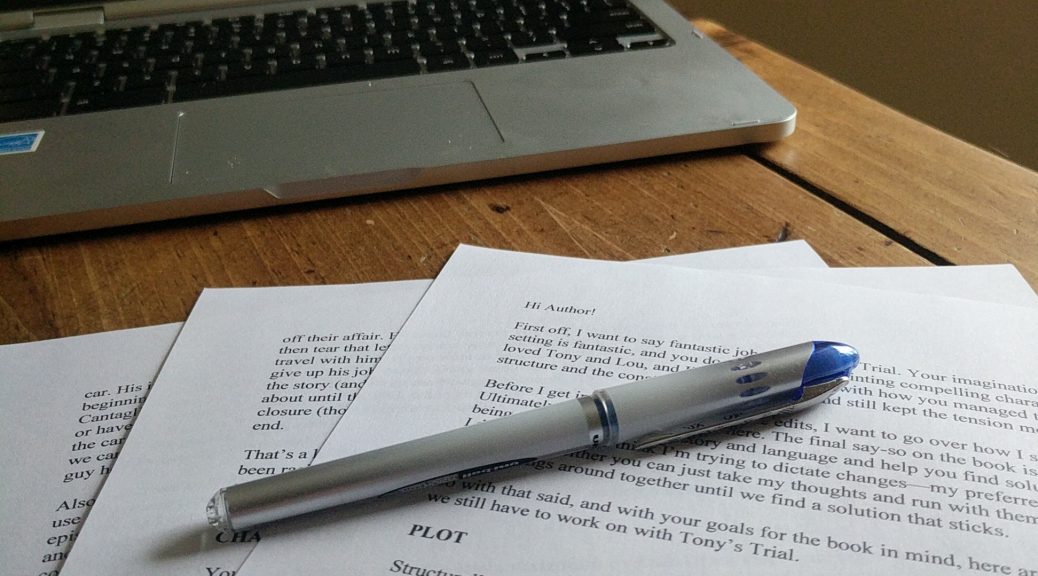Who Does Developmental Editing?
The short, pithy answer is: just about every writer and editor does developmental editing, when you think of it as the process of reading a story to find weaknesses in its plotting, structure, characterization, voice, setting, and pacing. But when people ask this question, they usually really mean “Whom should I hire to do developmental editing? What should their qualifications be?” And that’s a trickier question, because:
There are no standards for developmental editing
Developmental editing has no central authority, no one who verifies that someone is trained to a basic level of competency and grants a universally recognized imprimatur. There’s no qualification you should look for, no degree, no certificate from XYZ university or organization. You may find editors who have those things, and they may or may not be any good. Some editors have undergraduate or graduate degrees in creative writing or English. Some don’t. Some have reviewing, library, or bookselling experience. Some don’t. Developmental editing has always been a craft learned largely on the job via apprenticeship under another editor, and often through experimenting and making mistakes. The job requires the ability to read critically, think creatively, and communicate clearly, and beyond that it’s mostly a matter of reading lots of books, studying the craft of writing, and practice. Becoming a developmental editor is a messy process, and one that could stand to be improved, but hasn’t been yet.
Look for experience
In lieu of earning a developmental editing credential, most editors instead build experience. Signs of a good editor may include time spent working for a major traditional publisher or literary magazine, internships at small presses or magazines, or a long list of successful titles the editor has worked on. Check, though, that the editor’s tasks at that publisher or for that client included developmental editing. Having ten years of experience in copy editing (the job of checking for errors in continuity, fact, grammar, and mechanics) doesn’t necessarily translate into being a skilled developmental editor, because the two jobs are so different. The more experience an editor has, the more they’re likely to charge, so if you’re working on a tight budget, you may have to try an editor with less experience and hope you get someone particularly talented.
Get a sample
If you’re looking to hire someone to do your developmental editing, the best assurance you can have that you’ll be happy with their work comes from getting a sample read. Reputable freelancers should be willing to do one for you (though it may be short). If you’re deciding whether to work with a traditional publishing editor, they should be willing to discuss the changes they’d like you to make to your manuscript, how they communicate, how they see their role in the publishing process, and what you can expect from them. Trust your gut. If you like the way they communicate, like the suggestions they have to make, and think you’ll enjoy working with them, then go full speed ahead. If you don’t, consider your other options. There’s little worse in publishing than being stuck with an editor you can’t or won’t trust.
Next, we’ll discuss what to do when you’re unhappy with your developmental editing. Or you can return to our developmental editing index.









